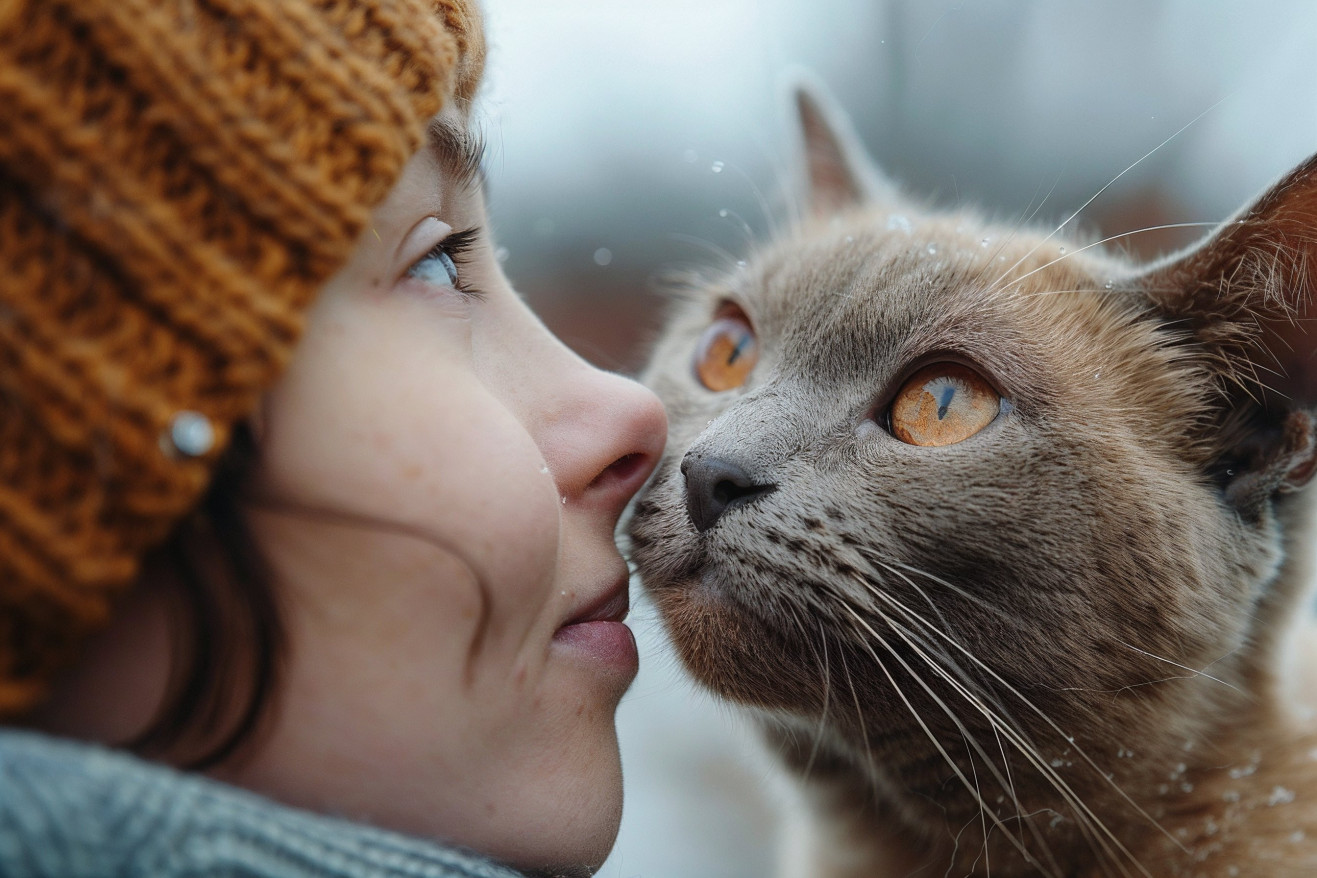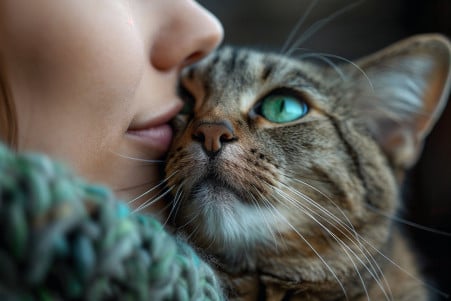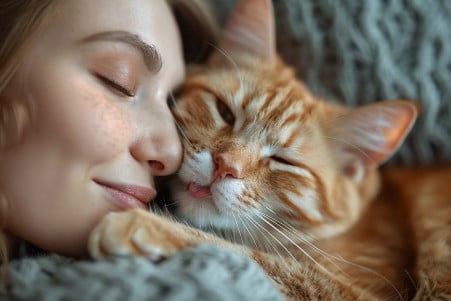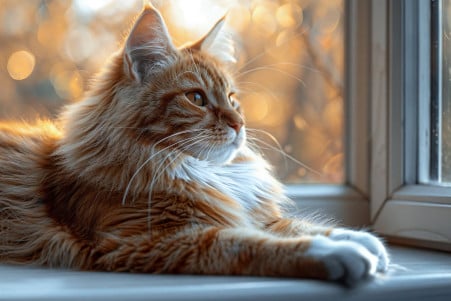Why Do Cats Smell Your Breath? Unraveling the Mystery
7 June 2024 • Updated 6 June 2024

If you've ever been on the receiving end of a cat sniffing your breath, you've probably asked yourself why your pet is so interested in this particular scent. As it happens, cats have an incredibly powerful sense of smell - one of the most powerful in the animal kingdom - and when they sniff your breath, they can pick up on a number of scents that can tell them about your health and what you've been eating.
In this article, we'll delve into the latest studies in animal behavior, veterinary science, and biology to find out why cats are so interested in the smell of human breath. This investigation will not only reveal the amazing things that cats' sense of smell can tell them, but also how their sense of smell is different from other animals and how it affects their relationships with their human companions.
Why do cats smell your breath?
Cats' Sense of Smell
Cats have an incredible sense of smell that is one of the most highly developed in the animal kingdom. This is because they have so many olfactory receptors - about 200 million, while humans have only 5 million. In addition, cats have a vomeronasal organ.
The vomeronasal organ, also known as Jacobson's organ, is a scent-analysis organ that enables cats to detect and interpret pheromones and other chemical signals. This organ is essential for scent analysis and helps cats collect information about their environment, recognize other animals, and determine their moods.
Cats use their sense of smell to a great extent to interact with the world around them. They use it to mark their territory, communicate with other cats, and learn about their environment. The flehmen response, in which a cat curls back its upper lip and inhales deeply, helps cats analyze and interpret scents by directing them to the vomeronasal organ.
In addition, cats have scent glands on their bodies, including their cheeks and paws, that release pheromones that cats use to mark their territory and communicate with other cats. When cats rub against people or objects, they leave behind these scent marks, which can tell other cats about their identity, rank in the social hierarchy, and even their mood.
Decoding the Scents: What Cats Can Smell in Human Breath
Cats have an incredibly keen sense of smell, and there are a number of things in human breath that they can pick up on. According to Catster, this includes the scent of certain foods, like fish or meat, which the cat may find interesting and want to explore further. Cats can also smell changes in human breath that may be a sign of an underlying health issue, such as diabetes or kidney disease.
In addition to the physical scents they can detect, cats can also smell a variety of pheromones and other chemical signals in human breath that can tell them a lot about the person. According to Yahoo Lifestyle, these chemical signals can let cats know about their owner's emotional state, including whether they are feeling stressed or anxious. When they smell a person's breath, cats can also confirm that the person is their owner and get a sense of how familiar and comfortable they are with that person.
Sniffing and Bonding: The Social Significance of Breath Smelling
Cats may sniff their owners' breath as a way to strengthen their social bond and show their love. According to Catster, breath sniffing is a type of greeting and familiarity, much like the way cats greet each other by sniffing and rubbing against one another. By sniffing a person's breath, cats can confirm who the person is and determine how comfortable and familiar they are with them.
Cats are more likely to sniff the breath of people they feel secure and comfortable with, as it is a sign of trust and acceptance. Yahoo Lifestyle explains that this can be a way for cats to show their love and strengthen their bond with their owners. The cat's comfort with breath sniffing shows how important and meaningful this behavior is in social and emotional terms.
How to Support and Promote Healthy Breath Sniffing
While breath sniffing is a normal and typically harmless behavior for cats, excessive or obsessive sniffing can be a sign of an underlying problem. According to PetMD, cats have scent glands all over their bodies that they use to mark their territory, and this rubbing and sniffing behavior is something they learn from their mothers. However, as Catster points out, cat owners should pay attention to their cats' breath sniffing and talk to a vet if it seems to be taking place too often or if it's happening along with other worrisome symptoms.
Positive reinforcement and bonding with your cat can be a great way to encourage healthy breath sniffing. According to Hepper, when a cat sniffs your breath, it's a sign that they trust and love you completely. In addition, providing cats with toys and activities that engage their sense of smell can help satisfy their curiosity and need to sniff.
Making sure your cat has good oral health and that any health problems that could lead to bad breath are treated can also ensure that both you and your cat have a better experience. By learning about and accepting this quirky cat behavior, you can also deepen your bond with your pet.
Conclusion: What to Know About Cats Sniffing Human Breath
Cats' interest in human breath is a complex behavior that's rooted in their strong sense of smell and their natural curiosity. By sniffing and analyzing human breath, cats can learn important things about their owners, including their identity, mood, and potential health problems. At the same time, this behavior is a way for cats to bond with and communicate with their owners, helping to strengthen the connection between a cat and the person it lives with.
Recognizing and understanding the reasons behind breath sniffing can help people build a stronger relationship with their cats. By accepting and providing outlets for this interesting behavior, people can help ensure that they have a happy and healthy relationship with their feline companions.


